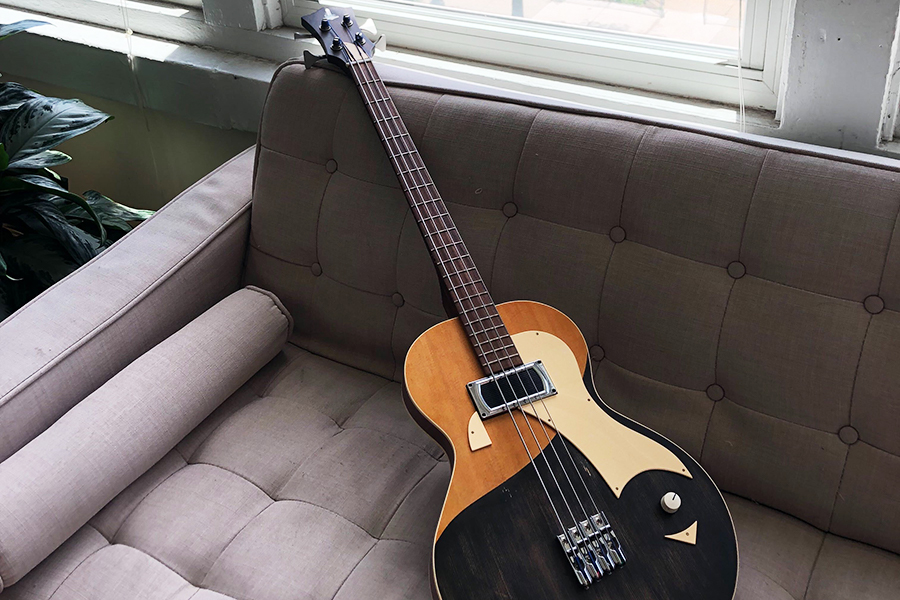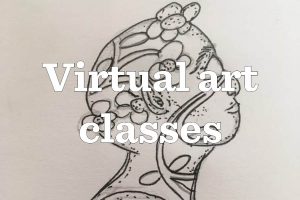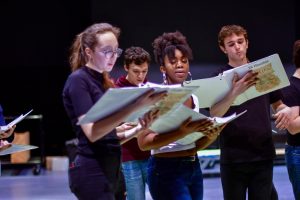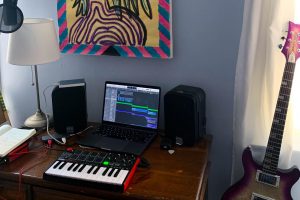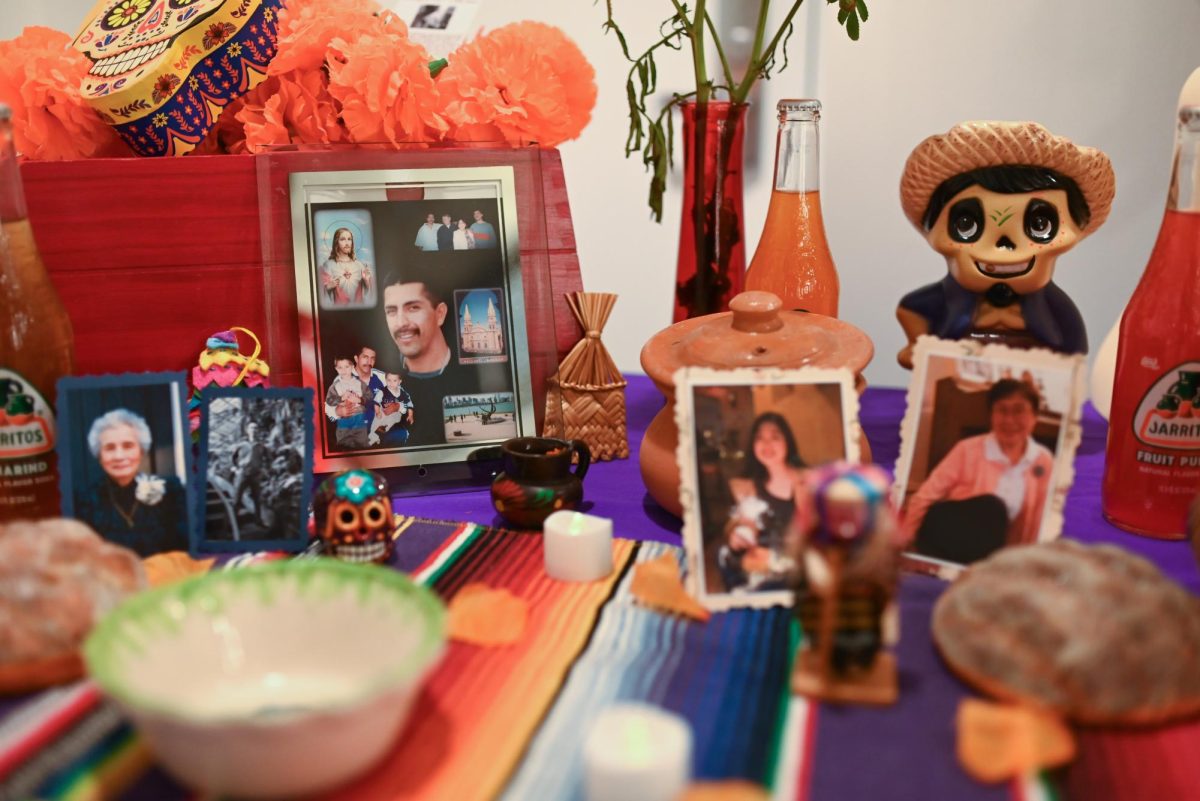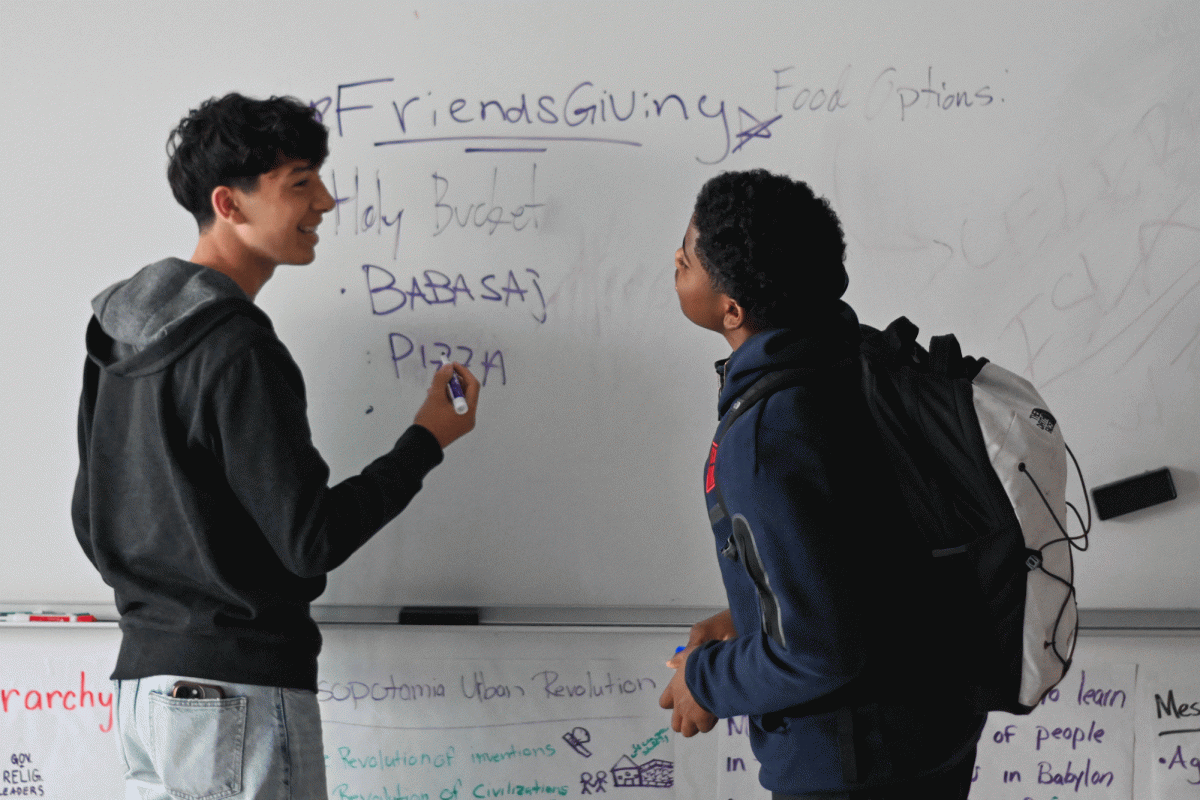Teen musicians improvise virtual ways to practice their music in groups
While separated, teen orchestras and other non-school musical groups are finding ways to still make music through audio editing, video conferencing.
May 21, 2020
The masterful combination of in-sync instruments, each playing their own sounds, normally combine to make one delightful composition. A spectator would normally be put in a trance by the long strokes of a bow and the smoothness of sound it would produce alongside an orchestra. However, it’s the communication between performers that is required to create arrangements. Between each piece, musicians are guided by each other through the timing of notes and intensity at which they play. Now, without their usual ability to meet in person, they must improvise new methods of correspondence to continue their output of music.
Even while separated and deprived of normal orchestral interaction outside of school, musicians from Lab are still finding a way to practice and share music within the light of their own homes.
Junior Fiona Abney-McPeek plays the violin with the Chicago Youth Symphony Orchestra. In response to the stay-at-home order, she says the orchestra will work with a professional editor to patch together recordings of each section for the final composition. While unusual, she said she is adapting to the circumstances.
“While it definitely does not feel the same playing my part, by myself, with a recording of an orchestra,” she said. “I am really thankful that we still get to make music together in some form.”
Fiona is participating in weekly videoconferences with her violin teacher to work on her pieces. She said that while normally she practices with a piano accompaniment, she has to use recordings of the piano part in order to learn her own, which has made it more difficult for her to play her own part.
“Normally when I play with an accompanist there is a lot of give and take, listening to what the other person is doing and reacting to that,” Fiona said, “and I really miss that aspect of collaborative music making.”
Since his upcoming performances have been canceled, sophomore Will Trone has been practicing cello alongside his teacher through videoconferences and on his own. Will, like Fiona, performs in CYSO and feels that even though he is still able to practice and improve, he wishes he could work with his orchestra as usual.
“Overall, I don’t think that virtual lessons have inhibited my personal ability to learn music; indeed, I have a lot more time to practice,” he said. “However, it is really unfortunate that I can’t rehearse or perform with my orchestra now.”
Ninth grader William Tan is another cello player who practices and rehearses with a group of fellow musicians through videoconference. He highlighted the restrictions of the platform, which make it difficult for everyone to hear each other clearly and perform among the same level.
“Zoom makes it difficult to play together, as sound cuts in and out and Zoom can’t handle too many players playing at the same time,” he said. “Also, it is difficult for my teachers and groupmates to critique my playing, and vice versa, due to the decent sound quality and the overall awkwardness of the situation.”
Despite the situation, William said he still enjoys his time practicing the cello at home. He says he uses practice as a way to get away from the normal stress of school now that he has more time for it.
“Playing the cello has sort of become an escape from the events of the day and online school,” he said. “The relative flexibility of the school schedule has allowed me larger chunks of time to practice, which makes it a lot easier and more enjoyable.”



